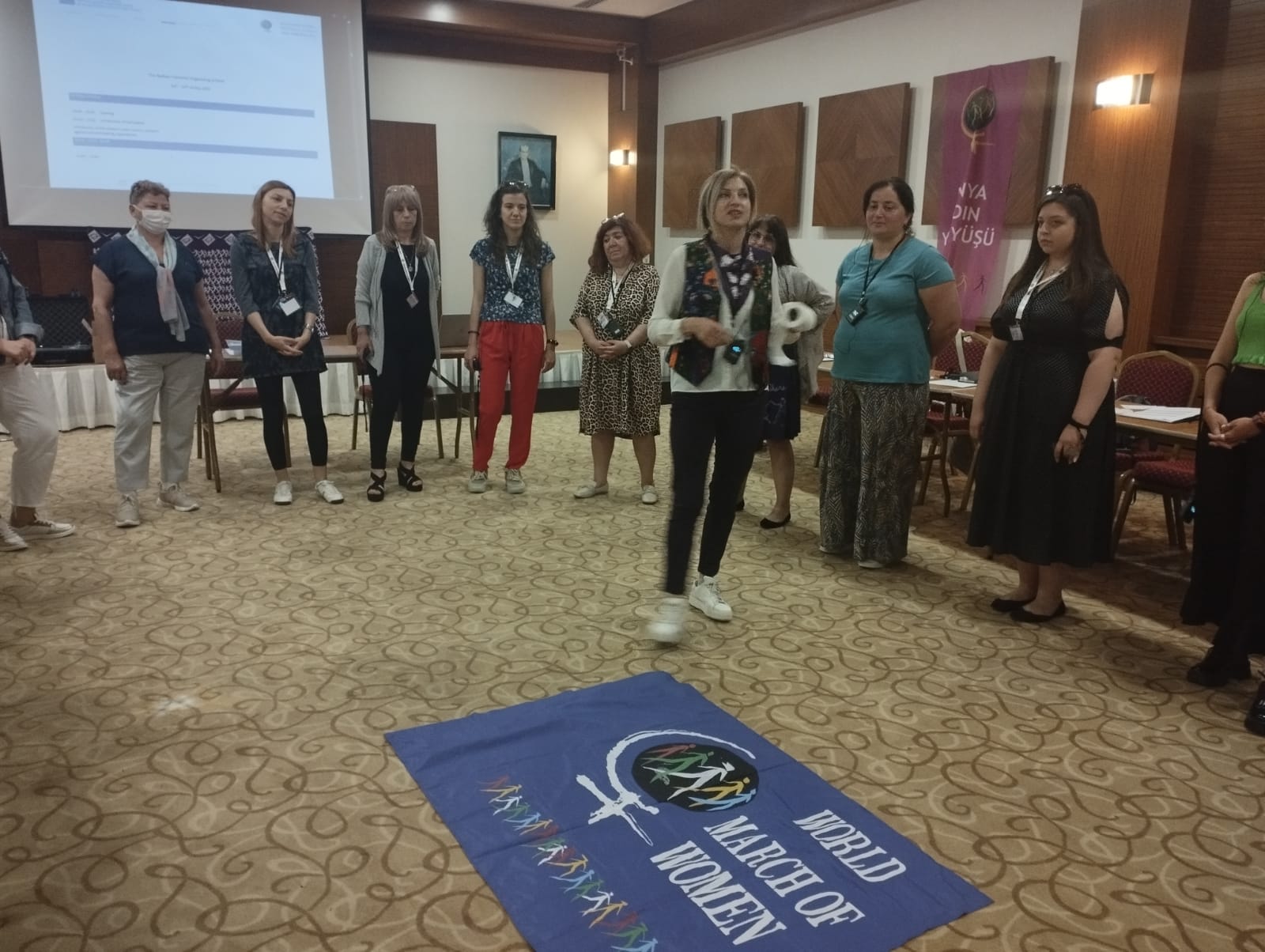
On 15 and 16 May, EU TACSO 3 project supported the NGO Balkan Feminist Organizing School (FOS) and the movement ,,World March of Women” (a feminist, anti-capitalist movement against women inequality and discrimination), in realization of P2P On-demand event, with women activists and women’s organisations from Turkey and Western Balkan countries.
The principal aim of Balkan Feminist Organizing School is to create a regional network among the groups and networks in order to share the good practices of the feminist economy and adopt a regional work plan for the World March of Women and its allied movements. This regional network will play a role to connect international agendas with local realities. The feminist training process starting with the Balkan FOS, is an instrument to bring together grassroots groups affiliated with these international allied movements in the region, namely World March of Women, Friends of the Earth International and La Via Campasina. It is because social change is only possible through society’s very basis, and international struggles need to be grounded in local realities. The grassroots groups have direct relation with women in neighbourhoods, villages, universities and working places. For example, participants from Turkey are from a neighbourhood theatre group, women’s organisations or cooperatives from small towns in close link with rural societies. It aims at creating and strengthening a core in the Western Balkans and Turkey which will subsequently mobilise the Balkans. It initiates the first step of a continuing regional process among participants connected with local grassroots struggles in Albania, Bosnia, Macedonia, Montenegro, Serbia, Kosovo*, and Turkey. It will help activist groups in this region to get to know each other’s context with similarities and differences and to get to know each other’s context with similarities and differences and build a sustainable regional relation.
The event discussed the concept of “feminist economy” which is based on four pillars: ecological economy, social solidarity economy, urban economy and care work, centering on the sustainability of life and food sovereignty. The Balkan Feminist Organising School experience, which will bring together grassroots feminist groups from Western Balkan countries accompanied by neighbouring countries and who are willing to articulate to the international feminist movement with their own CSO or CSO network, will be a first step on the way to a building a regional network.
The event’s overall objective is to create a ground for the World March of Women from Turkey and Western Balkans to share the good practices of the feminist economy and adopt a regional work plan for the World March of Women and its allied movements. As an output of this meeting, a video will be produced that will compile the discussions held during the meeting and interviews.
During the first day of meeting the participants started to know each other and their activities and discussed the meeting agenda by adopting a feminist methodology. In addition to that, the first day of meeting was an introduction to the concept “feminist economy” which is organised around an anti-capitalist and anti-colonialist approach and how it is linked to and adopted by women’s movement and women’s grassroots organisations.
In the second day of the The Balkan Feminist Organizing School the participants grouped the discussions held during the first day of the meeting concerning the problems encountered by women in each respective country. An introduction to feminist economy has been made in the plenary session of the second day, while the concepts of “social reproduction”, “subversion of economy”, “social solidarity economy”, “food sovereignty”, “grassroots feminism” have been discussed. It was underlined that, particularly the concept of “grassroots feminism” not only refers the transformation of unequal relationship between men and women, but also implies a political will that asks for transformation of all social and economic relations.
The second day continued with the presentations of the participants from Western Balkan countries on gender justice and environmental justice and the problems such as gender blind environmental policies, not existence of gender disaggregated data on environmental issues, lack of gender sensitive policies concerning empowerment of women have been discussed. In terms of the solutions to these problems free organic labelling support for organic production as well as negotiation with the super markets for the sale of organic products of smallholder producers were articulated.
